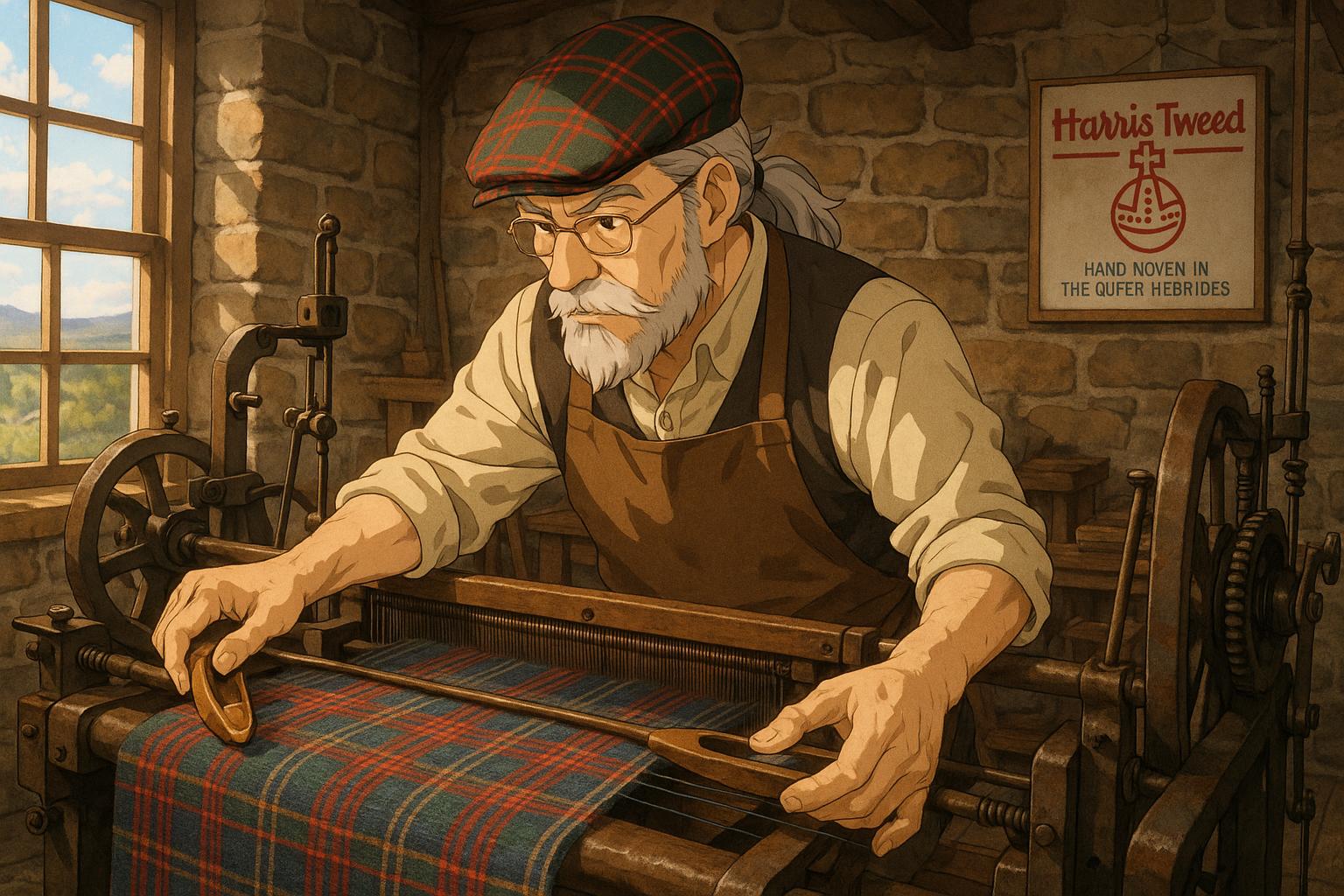Harris Tweed, the time-honoured fabric crafted by artisans in Scotland’s Outer Hebrides, is now grappling with significant challenges that threaten its very existence. This ancestral industry, renowned for its rich texture and distinctive patterns, has come under mounting pressure in the wake of tariffs imposed during the Trump administration. These tariffs, mainly affecting imported wool, have led to heightened costs for luxury textiles valued by fashion houses globally.
Historically, the fabric's story intertwines with that of its island community. In December 1957, Reverend Murdoch MacRae made a crucial journey to Washington, D.C., advocating against tariffs that jeopardised the livelihoods of local weavers amid a changing American market. His lobbying efforts succeeded in preserving the industry, but it appears that his legacy is now being threatened again by modern trade policies linked to another American political figure with familial ties to the Hebrides. Iain Martin, a fourth-generation Harris Tweed weaver, reflects on the situation bitterly, stating, “Trump might portray himself as a man of Scottish heritage; he doesn’t care. He’s out for himself, nobody else.”
Today, the approximately 150 weavers of Harris Tweed face a daunting economic landscape shaped by a 10% tariff on wool imports, a rate that applies to them alongside major corporations like Jaguar Land Rover and several luxury fashion brands. While the overall volume of Harris Tweed exports is modest—contributing to a £59.3 billion total of UK goods sent to the United States—these tariffs represent a significant threat to a trade long cherished by both weavers and consumers since at least the 18th century.
The industry has seen a renewed interest in Harris Tweed, particularly following the introduction of a limited-edition sneaker by Nike in the 2000s, which reintroduced the fabric to younger consumers. Nevertheless, the current economic climate is unsettling. Margaret Ann Macleod, CEO of Harris Tweed Hebrides, emphasises that the continued application of these tariffs, paired with rising employment taxes in the UK, is “hugely concerning.” The uncertainty surrounding the tariffs is also discouraging to American buyers, who may reconsider their use of Harris Tweed in their products due to potential price hikes.
In recent court proceedings, the US Court of International Trade found the Trump tariffs illegal, but an appeal has thrown this verdict into limbo, leaving weavers and manufacturers anxiously waiting for definitive resolutions. Macleod articulates the challenges this uncertainty poses to retailers, saying, “When there are unknown costs that we can't quantify, it can make the difference between them selecting a British heritage textile or not.”
As businesses like Harris Tweed Hebrides attempt to pivot towards growing markets in Asia, including South Korea and Japan, the slow, handcrafted nature of their production complicates quick transitions. Crafting the fabric is no simple task; it begins with sourcing pure sheep wool, followed by dyeing, spinning, and weaving. Each stage of this intricate process not only highlights the craftsmanship behind Harris Tweed but underscores its integral role in the local economy, with the Harris Tweed Authority estimating that the industry indirectly sustains an additional 1,100 jobs across the islands.
Compounding the challenges of Brexit and the tariffs, the luxury textile market is facing broader strife. A survey from Gallagher revealed that a staggering 90% of U.S. business owners are concerned about supply chain disruptions, reflecting a wider climate of uncertainty that also adversely affects luxury retailers reliant on overseas manufacturing. Similarly, tensions between the U.S. and European markets could exacerbate these challenges for the luxury sector, which has already felt a sting from slowing demand amidst geopolitical unrest.
Retailers selling Harris Tweed garments have begun adapting to the new economic realities. For example, Peter Christian, a British tailoring brand, has introduced discounts labelled “reverse tariffs” in an attempt to offset the costs to consumers. As economic conditions continue to evolve, the industry must navigate these challenges while also combating counterfeiting and building brand awareness in fresh markets.
Ultimately, the future of Harris Tweed remains uncertain as it grapples with both immediate tariff impacts and longer-term trends in luxury consumption. As Iain Martin poignantly states, weaving is “in the blood” of the island's people, and their resolve to preserve this craft will be tested more than ever in this tumultuous trade environment.
📌 Reference Map:
Source: Noah Wire Services
